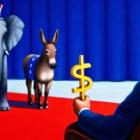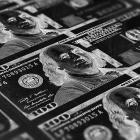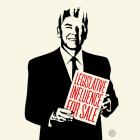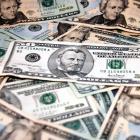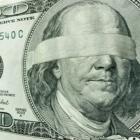Yarvin saw the “red pill” as the realization that the Enlightenment ideals he came to associate with “the cathedral” and democracy are actually a poison leading to societal decadence and decline.
Center for Responsive Politics
Follow:
-
The New Revolving Door: Silicon Valley Cozies Up to Washington, Outspending Wall Street 2-1
Big tech firms spent $49 million on Washington lobbyists last year, while the five largest banks shelled out $19.7 million, marking a sea change in terms of who exercises political influence on the Hill.
-
Money Owns Politics As $3.6 Billion In Election Spending Shatters Records
The vast sums of cash raised by independent groups reordered the political landscape this fall as new levels of collaboration eroded barriers between those running for office and their big-money allies.
-
How the Dark Money Regime Is Shaping 2014 Elections
2014 is on pace to be the Year of Dark Money.
-
Failing to Rein in Spending, IRS Delays New Rules for Dark Money Groups
The agency has postponed rules to impose new spending limits by social welfare nonprofits, which have poured money into politics since the Supreme Court's Citizens United decision in 2010.
-
Even McCutcheon Supreme Court Case Won't Alter Money's Influence on Politics
If the court were to axe the current overall contribution limits posed in McCutcheon v. FEC, some predict that fewer than 500 people could fund all of electoral politics, creating a government run of, by and for those 500 people.
-
Supreme Court To Decide on Campaign Finance Limits
McCutcheon v. Federal Election Commission will determine whether the limit is lifted or changed on federal spending laws to finance candidates, parties and PACs
-
Why Are Privately Employed Lobbyists Getting State-Funded Pensions?
There’s a big problem when lobbyists have been pushing austerity and benefit cuts for other government workers while they themselves enjoy solid state pensions.
-
The Year of Magical Spending
Now that we've survived the elections, a new analysis shows companies contributed roughly $75 million to super PACs in the 2012 election cycle, 85% of which went to Republican-allied groups.


